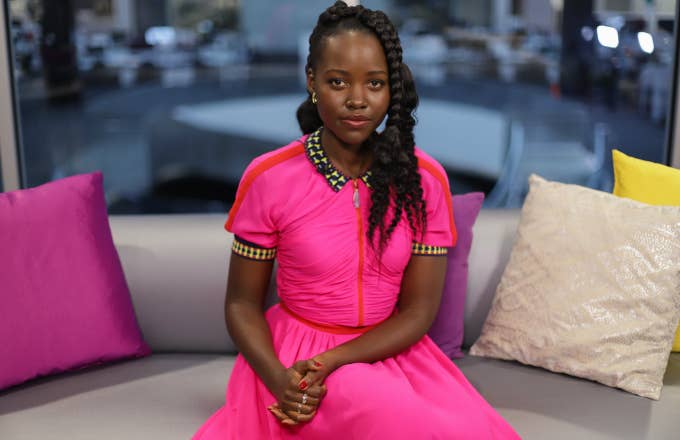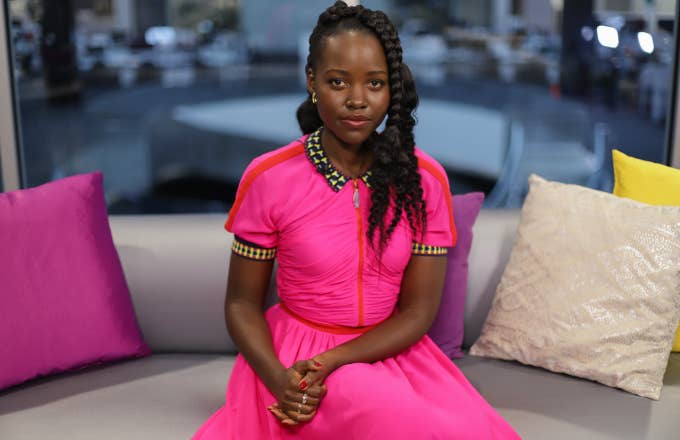
Jordan Peele's record-breaking film Us is now facing criticism from disability organizations who took offense to the voice used by Lupita Nyong'o's doppelgänger.
On Wednesday, it was reported that several organizations, including The National Spasmodic Dysphonia Association (NSDA), did not appreciate the way Nyong'o impersonated the muscular disorder to enhance her villainous character. As a result, the NSDA issued a statement explaining their concerns.
"One of the toughest parts of having a disability is that people make assumptions based on the way you walk, talk or act, sometimes with little understanding of what is causing it," the organization stated. "We understand that hearing the unique sound caused by symptoms of spasmodic dysphonia was the spark of inspiration for the voice of this character. What is difficult for us, and for the thousands of people living with spasmodic dysphonia, is this association to their voice with what might be considered haunting."
Along with the NSDA, Jennifer Laszlo Mizrahi, the president of RespectAbility, a non-profit organization rooted in fighting stigmas, also spoke out against the sensationalizing of this disability.
"Connecting disabilities to characters who are evil further marginalizes people with disabilities who also have significant abilities and want to contribute to their communities just like anyone else," Mizrahi stated.
This outrage comes after Nyong'o admitted to several publications that she manufactured her doppelgänger's voice after hearing Robert F. Kennedy, Jr, who suffers from Spasmodic Dysphonia, speak at a fashion event.
"Well, I was inspired by the condition Spasmodic Dysphonia which is about from a trauma—sometimes emotional, sometimes physical—and it creates this spasming in your vocal cords," Nyong'o said to Variety. "It's inspired by the condition, it's not an exact replica of the condition."
Although Lupita Nyong'o does explain that her doppelgänger's voice is not an imitation of the disability, those that suffer from Spasmodic Dysphonia feel that Nyong'o is not only villanizing their condition but also misinforming the audience because it doesn't derive from trauma.
"For so long, people were told that it’s psychological — and it’s not. It’s neurological," NSDA director Kim Kuman said. "Spasmodic dysphonia is not a creepy voice; it’s not a scary voice. It’s a disability that people are living with and shouldn’t be judged upon."

